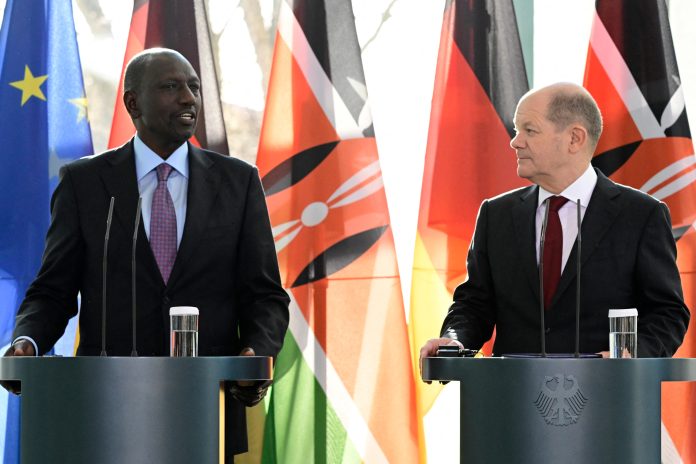German Chancellor Olaf Scholz and Kenyan President William Ruto signed a Labour Agreement in Berlin to permit 250,000 skilled and semi-skilled Kenyan workers to enter the country. The signing comes amid domestic unrest over the migration crisis in Germany and other European countries.
Berlin is facing a shortage of skilled labour while Kenya is facing growing difficulties in providing jobs and sufficient income for its young professionals, as a result the countries signed the agreement but the statement does not note the number of workers who will have entry permits. The federal government agreed to ease some parts of its immigration laws to ensure Kenyans can find work in Europe’s largest economy.
In addition, the government will consider extending temporary residence permits for Kenyan workers who have found approved jobs. Kenyans will receive long-term visas to study or undergo vocational training in Germany.
The temporary residence permit can be extended if the purpose of residence has not reached yet but is achievable within a reasonable period of time. IT workers from Kenya will be able to enter and work in Germany, even if they have no formal qualifications. The two states will support the immigration of skilled workers who have completed vocational training or university education, on condition their qualifications are recognised by the relevant authorities of the other party.
The International Labour Organisation (ILO), in turn, stressed the deal was expected to significantly increase access to decent foreign jobs for Kenyan workers in Germany and address labour shortages in Germany. Doctors, nurses and teachers among others expected to take part in the programme.
Difficulties for two countries
Kenya faces two points. Firstly, on the one hand, moving to Germany for many skilled workers could impact positively. On the opposite side, there are fears of a brain drain from Kenya as professionals such as doctors and nurses leave to work abroad, resulting in a huge shortage of health workers in local hospitals.
Germany, on the other hand, is on edge over the issue of immigration, which is a huge problem in the country. In recent times, Berlin has permitted a relatively large number of asylum seekers to settle. During the 2015-2016 migration crisis, Germany welcomed more than a million people, mostly fleeing war in countries such as Syria, after the outbreak of war in Ukraine – 1.2 million Ukrainian refugees have already come. As a result, Berlin may face mixed reactions from its citizens. For instance, politicians from nationally-oriented parties are in favour of limiting social benefits.
